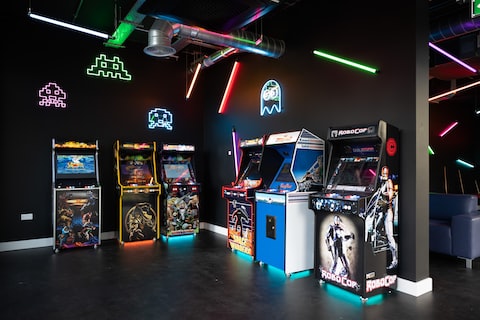Gaming Goes Social: Understanding the Role of Social Media in Gaming Culture
In today’s digital age, gaming has transformed into more than just a solitary activity. It has become a social phenomenon, thanks to the influence of social media. The integration of social media and gaming culture has formed a powerful alliance, redefining the way gamers interact and shaping the gaming landscape.
The rise of online gaming has provided a platform for gamers to connect and engage with a diverse community of players. From MMORPGs (Massively Multiplayer Online Role-Playing Games) to multiplayer battle royales, gamers can now team up or compete with friends and strangers from all around the world. Social media has facilitated these interactions by allowing gamers to find each other, share experiences, and join gaming communities.
Social media platforms like Facebook Gaming, Twitch, and Discord have become central hubs for gamers to livestream their gameplay, discuss gaming news, and engage in meaningful conversations. Gamers can follow their favorite streamers, watch live gameplay sessions, and chat with other viewers who share similar interests. These platforms provide a space for gamers to showcase their skills, build a fan base, and establish a sense of belonging within the gaming community.
Twitter, Reddit, and gaming forums have also become crucial channels for discussing gaming trends, sharing tips and tricks, and connecting with fellow gamers. Gamers can join online forums to seek advice, share game-related content, and celebrate achievements. Social media has transformed gaming into a collaborative experience where knowledge and experiences are shared, fostering a sense of camaraderie among gamers.
Beyond connecting gamers, social media has also influenced the gaming industry as a whole. Through social media, game developers and publishers can directly interact with their player base, gather feedback, and promote their latest releases. The gaming community actively participates in discussions, provides suggestions, and even influences game development by voicing their opinions on social media platforms.
Furthermore, social media has facilitated the growth of esports, the competitive gaming scene. Platforms like Twitter, YouTube, and Twitch have allowed esports professionals to connect with fans, showcase their skills, and promote tournaments. Social media has transformed esports into a mainstream phenomenon, attracting millions of viewers and creating lucrative sponsorship opportunities.
In conclusion, the integration of social media into gaming culture has revolutionized the way gamers interact and communicate. It has transformed gaming from a solitary experience into a social one, connecting gamers from different corners of the world. Social media platforms have become essential tools for gamers, enabling them to connect, share, and engage within the gaming community. As gaming continues to evolve, social media will undoubtedly play a central role in shaping its future.

